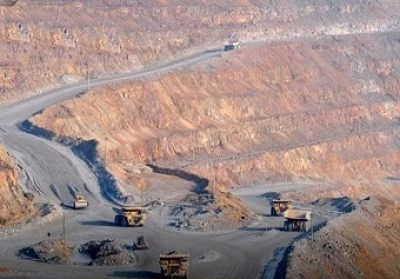Tensions rise in Khyber Pakhtunkhwa, Balochistan as Islamabad tightens grip on natural resources
By IANS | Updated: August 27, 2025 13:45 IST2025-08-27T13:43:14+5:302025-08-27T13:45:14+5:30
New Delhi, Aug 27 There is a growing unrest in Pakistan’s resource-rich regions like Khyber Pakhtunkhwa (KP) and ...

Tensions rise in Khyber Pakhtunkhwa, Balochistan as Islamabad tightens grip on natural resources
New Delhi, Aug 27 There is a growing unrest in Pakistan’s resource-rich regions like Khyber Pakhtunkhwa (KP) and Balochistan as Islamabad is riding roughshod over the rights of these states to their natural minerals.
Pakistan’s natural resource management saga has become a cautionary tale of how entrenched centralisation continues to erode provincial autonomy, despite constitutional guarantees to the contrary.
Fifteen years after the landmark 18th Amendment promised greater provincial control over natural resources, the same patterns of exploitation persist, according to an article in the European Times.
The 18th Amendment, passed in 2010, was hailed as a watershed moment for federalism. Through Article 172(3), it enshrined joint ownership of natural resources between the provinces and the federal government. Yet the reality on the ground paints a starkly different picture, one of systematic circumvention and subversion of provincial rights, the article points out.
Today, the federal government pays lip service to the ideals of autonomy while orchestrating elaborate mechanisms to retain its grip on the nation’s mineral wealth. This contradiction between constitutional promise and political practice has precipitated a governance crisis that threatens both Pakistan’s stability and its economic future, the article states.
As KP is endowed with vast deposits of marble, granite, gemstones, chromite, and copper, the province should be flourishing. Instead, its natural wealth is systematically extracted to benefit federal interests, with minimal reinvestment in local infrastructure, education, or healthcare, the article added.
It also highlights Balochistan as the most tragic case in Pakistan’s federal landscape. Despite being endowed with immense mineral wealth, including copper, gold, coal, and rare earth elements, it remains the country’s most impoverished and underdeveloped province. The disconnect between resource abundance and local deprivation is not accidental; it is the result of decades of extractive policies that prioritise federal and foreign interests over provincial rights and community welfare, the article states.
Media reports also point out that Balochistan has long been a flashpoint of ethnic and political unrest, exacerbated by perceptions of exploitation by foreign powers. China’s heavy footprint in the region through the China-Pakistan Economic Corridor (CPEC) has already fuelled resentment.
The Pakistan Army chief Asim Munir is now in direct touch with the Donald Trump administration to cut a deal with the US for resource extraction which could further alienate local populations and entangle Washington in a volatile domestic conflict.
Balochistan holds strategic interest for the US as a potential vantage point to keep a close watch on Iran. But leveraging the province for geopolitical gain is fraught with the risk of escalating tensions in a region that harbours strong anti-Western sentiment.
Disclaimer: This post has been auto-published from an agency feed without any modifications to the text and has not been reviewed by an editor
Open in app